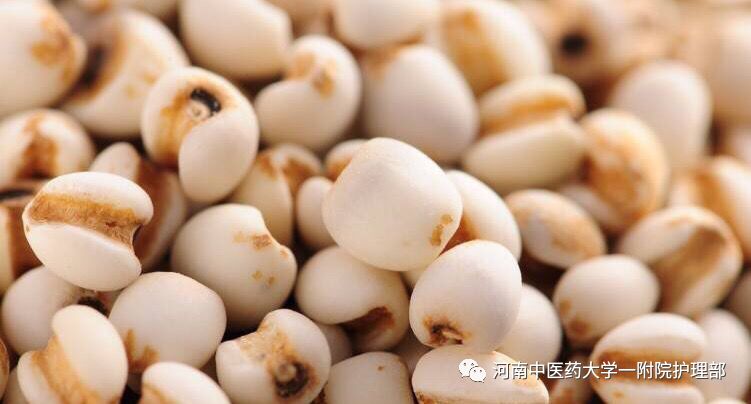Coix Seed: A Premium Diuretic and Anti-Cancer Herb

Coix seed (Yìyǐrén), the seed of the plant Coix lacryma-jobi, is also known as Job’s tears. The grains of coix seed are plump, white, and clean, with a soft and glutinous texture. They are rich in starch, protein, fat, calcium, phosphorus, iron, and vitamins, making them a nutritious food. Coix seed can be made into soups, porridge, or rice dishes, serving as a nourishing delicacy. In addition to being consumed as food, coix seed is also a valuable medicinal herb. In Traditional Chinese Medicine (TCM), the applications of coix seed are extensive, treating conditions such as urinary difficulties, edema, beriberi, spleen deficiency diarrhea, as well as rheumatic pain, muscle spasms, and diseases like lung abscess and intestinal abscess.


Modern pharmacological studies have confirmed that coix seed possesses certain antibacterial, antiviral, and anti-cancer properties. For cancer patients, coix seed is an excellent herb with anti-tumor effects. It has shown good results in improving conditions such as leukopenia, loss of appetite, ascites, and edema that occur during radiotherapy and chemotherapy.
1

Coix seed is slightly cold in nature, excels in promoting urination and dispelling dampness, clearing heat and expelling pus, and alleviating pain. It can be used for urinary difficulties, edema, beriberi, lung abscess, intestinal abscess, rheumatic pain, muscle spasms, and damp-heat diseases affecting the Qi level. For example, the Coix and Eucommia Decoction (Yìyǐ Dùzhòng Tāng) is used for treating beriberi and edema; the Reed Stem Decoction (Wěijīng Tāng) is for lung abscess with purulent cough; the Coix Decoction (Yìyǐ Tāng) is for early-stage intestinal abscess; the Coix Seed Powder (Yìyǐrén Sǎn) is for rheumatic pain; and the Three Nut Decoction (Sān Rén Tāng) is for damp-heat diseases affecting the Qi level.


Common Preparations Include:
Green Bean and Coix Seed Porridge
1. Clean and prepare coix seed, green beans, rice, and millet.
2. Place coix seed, green beans, and rice in a clay pot, add water, and cook for 40 minutes.
3. Add millet and cook for another 30 minutes.
1

Fruit-flavored Milk Coix Seed Sago
1. Prepare sago, coix seed, and dried fruits (such as cranberries and black currants).
2. Cook coix seed in a pot of water until fully cooked.
3. In another pot, cook sago until semi-transparent, add appropriate cold water, and continue cooking until almost fully transparent.
4. Once the sago is nearly done, add it to the pot with the cooked coix seed.
5. Add milk and a small amount of sugar, and continue cooking until slightly boiling.
6. Add dried fruits to taste.
1

Coix Seed Lemon Water
1. Rinse coix seed with running water, then soak in clean water for 1 hour.
2. Add enough water and rock sugar to the coix seed, bring to a boil over high heat, then simmer for 1 hour.
3. After cooking, uncover and let cool.
4. Slice lemon thinly and add to the cooled coix seed mixture.
1

Coix Seed and Pork Rib Winter Melon Soup
1. Clean coix seed and set aside; clean pork bones, blanch to remove scum, and set aside.
2. Clean winter melon and cut into 5mm slices, do not peel, as the skin has weight-loss and beauty benefits; slice ginger.
3. In a clay pot, add boiling water, then add the blanched pork bones, winter melon, cleaned coix seed, and ginger. Bring to a boil, skim off the foam, then reduce to medium-low heat and simmer for about an hour, adding salt to taste.
Nutritional Benefits:
1. Winter melon has the effects of moistening the lungs, generating fluids, resolving phlegm, quenching thirst, promoting urination, and detoxifying. It is suitable for kidney disease, edema, liver cirrhosis with ascites, cancer, beriberi, hypertension, diabetes, arteriosclerosis, coronary heart disease, obesity, and for those lacking vitamin C.
2. Coix seed is sweet, bland, and slightly cold in nature, promoting urination, reducing swelling, strengthening the spleen, dispelling dampness, relaxing muscles, and alleviating pain. It is a commonly used diuretic and damp-dispelling herb.
1

Image source: Internet, copyright belongs to the original author. If there are any questions, please contact us, and we will promptly delete.
Warm Reminder:
Address of the First Affiliated Hospital of Henan University of Traditional Chinese Medicine, Longzi Lake Campus:
156 Jinshui Road, Southeast Corner of Longzi Lake Road and Boxue Road
Consultation Phone:66221940
Editor-in-Chief: Lin Zhihong Editor: He Siqi
This issue reviewed by: Lin Zhihong Images provided by: Li Ruihua

